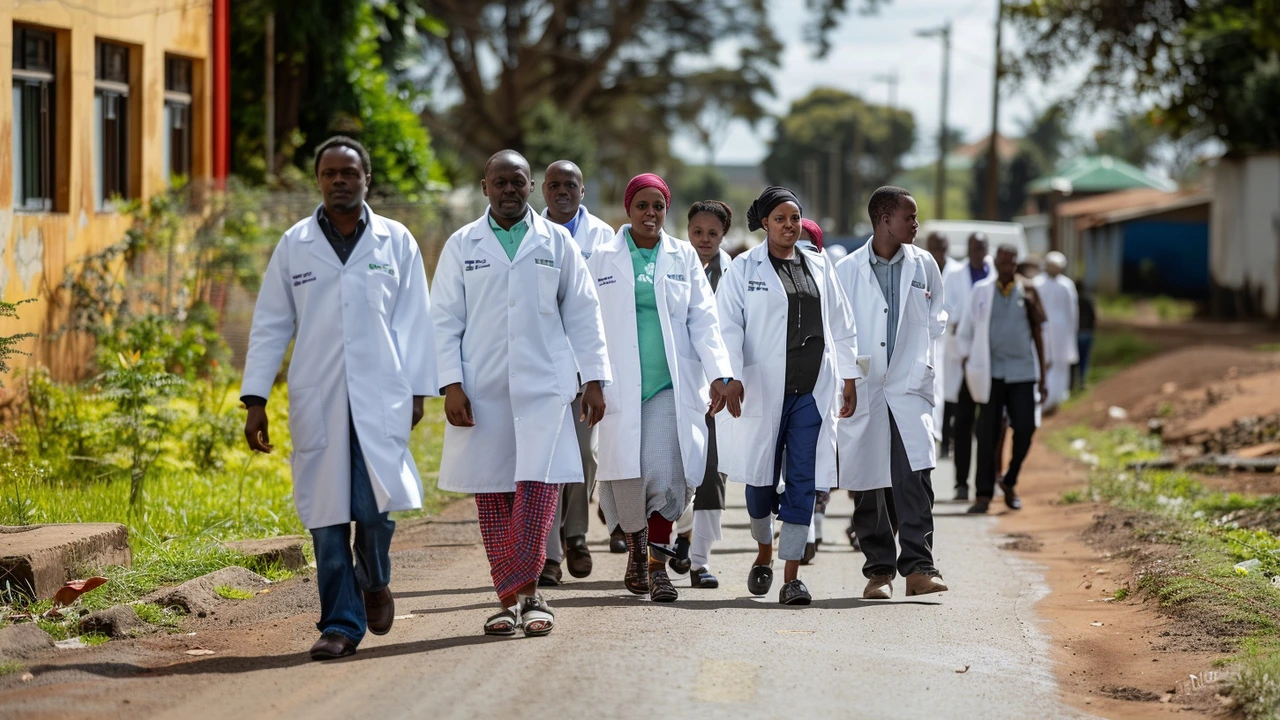Doctors Strike: What It Means for Healthcare Across Africa
When doctors decide to strike, it's not just a headline—it directly hits the heart of healthcare. In many African countries, these strikes reflect deeper issues like poor pay, unsafe working conditions, and lack of resources. Patients often face delays, reduced access to services, and sometimes tragic outcomes. Understanding the causes behind such strikes can help us grasp the challenges the health sector faces.
Take the example of Kenya, where ongoing air ambulance tragedies and safety concerns tie into broader frustrations among healthcare workers. These incidents often spark or coincide with strikes, making both patients and medical staff stuck in difficult spots. The strikes aren’t just about wages; they're also about safety, respect, and the ability to provide proper care.
Why Are Doctors Striking?
Behind every strike is a list of grievances: inadequate pay, long working hours, poor facility conditions, and lack of essential medical equipment. Doctors feel undervalued despite their critical role, which saps motivation and quality of care. When governments or hospital administrations drag their feet, frustration builds until medical teams take action to be heard.
This isn’t just an African problem, but here, limited healthcare budgets and growing populations make it even tougher. Strikes highlight the gap between what’s expected from doctors and the reality they work in daily. These protests aim to pressure authorities into improving conditions before more patients suffer.
How Does a Doctors Strike Affect You?
Imagine needing emergency care but finding hospitals understaffed or services unavailable—this is a harsh reality during strikes. Elective surgeries get postponed, outpatient visits drop, and treatment follow-ups go unattended. Sometimes, emergencies are diverted far away, increasing risks and costs for families.
It's not just inconvenience; it impacts lives. When strikes drag on, it strains the entire health system, pushing already vulnerable patients to the brink. This could mean setbacks in tackling infectious diseases, maternal health, or chronic illness management.
Understanding these dynamics invites better conversations about how to support our doctors and improve health services. When doctors feel heard and conditions improve, strikes become less frequent, and patients get better care.
At JLT Creative Daily News Africa, we keep an eye on these strikes because they reveal much about how our healthcare system ticks. Stay with us as we bring updates, expert opinions, and stories from those on the front lines.

Kenyan Doctors Resume Work: Government Strike Resolution Brings Major Relief to Public Health Services
After nearly two months of striking, Kenyan public hospital doctors have returned to work following a significant agreement with the government. This resolution addresses overdue salaries, the hiring of interns, and enhances medical insurance coverage, marking an end to the healthcare service disruptions.
